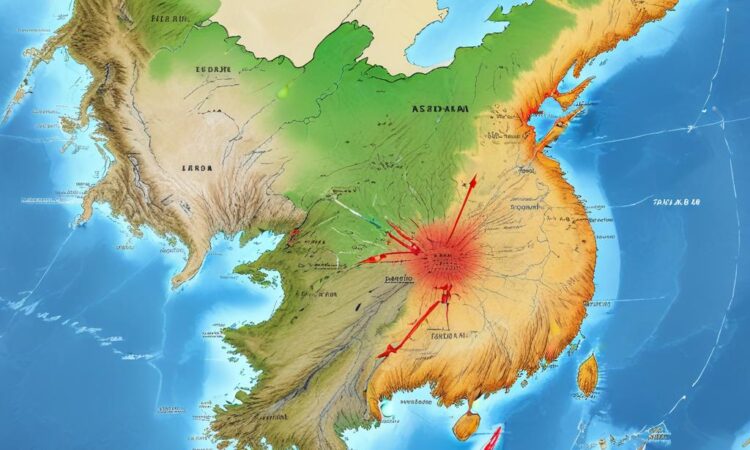North Korea’s Missile Tests: Escalating Tensions on the Korean Peninsula
North Korea’s recent surge in missile launches has ignited a wave of concern and condemnation across the globe, escalating tensions on the Korean peninsula and prompting a flurry of diplomatic activity. The frequency and range of these tests have raised alarms, prompting the United States and its allies to strengthen their military presence in the region and engage in a series of diplomatic efforts to de-escalate the situation.
The recent launches have been condemned by the United Nations Security Council, which has imposed stringent sanctions on North Korea for its nuclear and ballistic missile programs. The international community has expressed deep concern over the potential for these tests to destabilize the region and heighten the risk of conflict. The United States has also implemented its own sanctions, targeting North Korean officials and entities involved in the country’s weapons programs.
Background: A History of Provocations
North Korea’s missile tests are not a new phenomenon. The country has been conducting such tests for decades, often in defiance of international condemnation. These tests are seen as a way for North Korea to assert its military capabilities and deter potential aggression. The regime has also used missile tests to pressure the international community into lifting sanctions and recognizing its status as a nuclear power.
The recent escalation in missile launches is largely attributed to the North Korean leadership’s desire to strengthen its military posture in the face of growing tensions with the United States and its allies. The regime has expressed its belief that these tests are necessary to defend itself from perceived threats, particularly from the United States, which maintains a significant military presence in the region.
The International Response: Condemnation and Diplomatic Efforts
The international community has reacted swiftly and decisively to North Korea’s recent missile tests. The United Nations Security Council has condemned the launches in strong terms, calling them a violation of international law and demanding that North Korea cease its provocative actions. The Council has also imposed further sanctions on the country, targeting its economic activities and limiting its access to key resources.
The United States has also condemned the tests and announced a series of measures to counter North Korea’s actions. These measures include strengthening its military presence in the region, imposing new sanctions, and engaging in diplomatic efforts to persuade North Korea to abandon its nuclear and ballistic missile programs.
South Korea, which is directly threatened by North Korea’s missile tests, has also expressed deep concern over the situation. The South Korean government has called for North Korea to cease its provocative actions and has taken steps to strengthen its own military defenses.
The Impact: Increased Tensions and Regional Instability
North Korea’s missile tests have had a significant impact on the Korean peninsula and the wider region. The tests have increased tensions and heightened the risk of conflict. They have also led to a significant increase in military activity, as the United States and its allies have bolstered their defenses in response to North Korea’s actions.
The tests have also had a negative impact on regional economies. The increased tensions have made businesses and investors hesitant to operate in the region, leading to a decline in economic activity. The sanctions imposed by the international community have also had a significant impact on the North Korean economy, further isolating the country from the rest of the world.
The Future: Unpredictable and Uncertain
The future of the Korean peninsula remains uncertain. North Korea’s continued missile tests and its pursuit of nuclear weapons are a significant threat to regional stability. The international community is facing a difficult challenge in trying to deter North Korea from further provocations and to achieve a lasting solution to the nuclear crisis.
It remains to be seen whether diplomatic efforts will succeed in persuading North Korea to abandon its nuclear and ballistic missile programs. In the meantime, the Korean peninsula remains a flashpoint for regional instability and a source of global concern.
The situation is evolving rapidly, and it is important to stay informed about the latest developments. The international community is closely monitoring the situation and is prepared to take further action if necessary to ensure regional security and stability.

